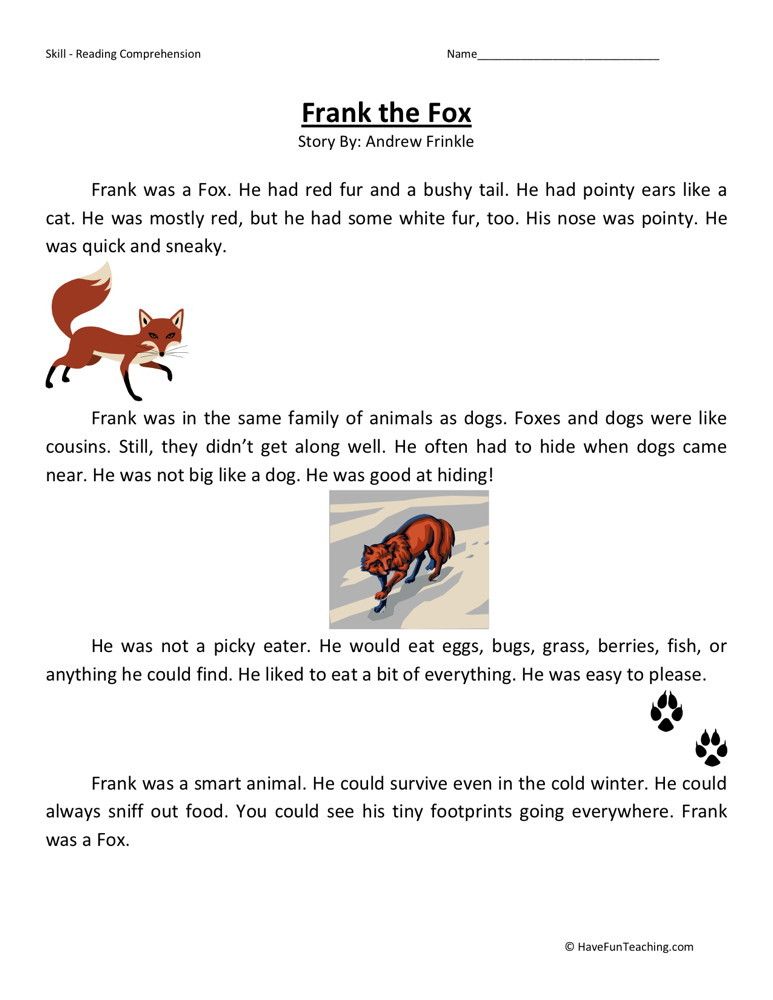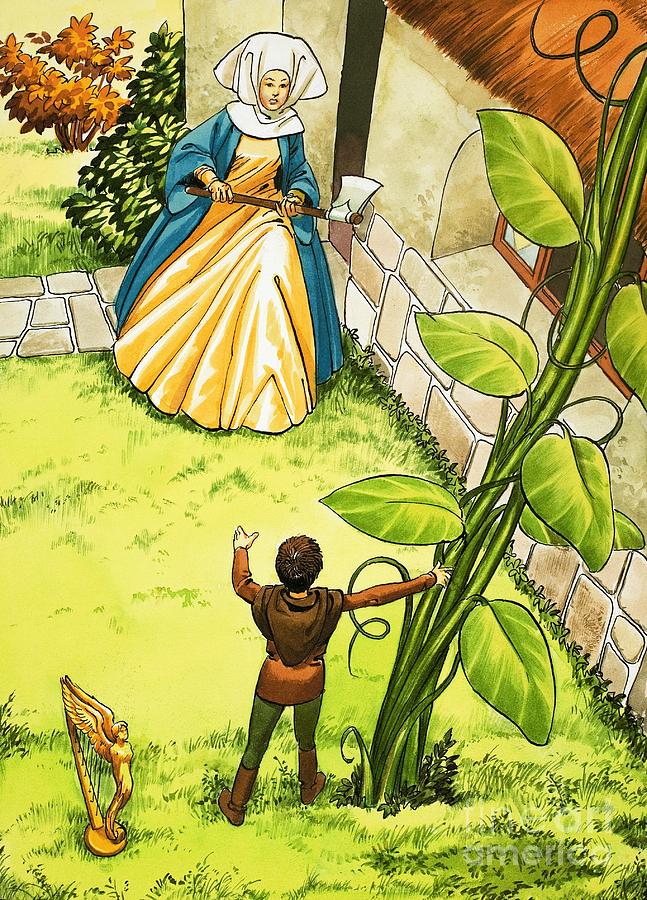The sky is falling story
The Story of Chicken Little: The Sky is Falling
© Written by Tasha Guenther and illustrated by Leanne Guenther
Fairy tale based on the original story first collected by Danish librarian Just Mathias Thiele.
There was once a big farm near a vast field, and here there lived a hen named Penny. She was great friends with everyone, and those who knew her gave her many names.
She was a tiny hen. The other chickens in the yard would tease her for her size. They often termed her “Chicken Little.” While Penny surprisingly loved this name, her favorite thing to be called was “Henny-Penny,” given to her by the other fowls that lived nearby. The rhyme was perfect, it was sweet, and she liked it very much.
One morning, as Henny-Penny was plucking worms in the henyard, an acorn dropped from a tree right onto her head! She had no idea what had hit her, however, and so she started shouting:
“The sky is falling! The sky is falling!”
She ran around in circles for a while, calmed herself, and then got right to waddling—she had to alert the king!
She waddled and waddled and waddled until she found her excellent friend Rooster-Booster.
“What’s the matter, Henny-Penny?” he asked.
“Oh, Rooster-Booster, the sky is falling! The sky is falling! And we must alert the king!” she cried.
“Oh, we must, we must!” he cried back.
Henny-Penny and Rooster-Booster waddled and waddled and waddled until they saw their wonderful pal Ducky-Chucky.
Now, Ducky-Chucky was basking in the sun near the pond’s edge when he noticed the two chickens fast-approaching.
“Henny-Penny, Rooster-Booster: hello! Fine day, isn’t it?” Ducky-Chucky giggled and splashed into the water.
“Oh, Ducky-Chucky, the sky is falling! The sky is falling! And we must alert the king!” Henny-Penny exclaimed.
“Oh, we must, we must!” Rooster-Booster chimed in.
Ducky-Chucky bounded from the pond and joined his friends immediately. As he shook his little webbed feet free of water, he felt the warm sun dry them quickly and wondered how the sky could fall on a warm summer’s day such as this one.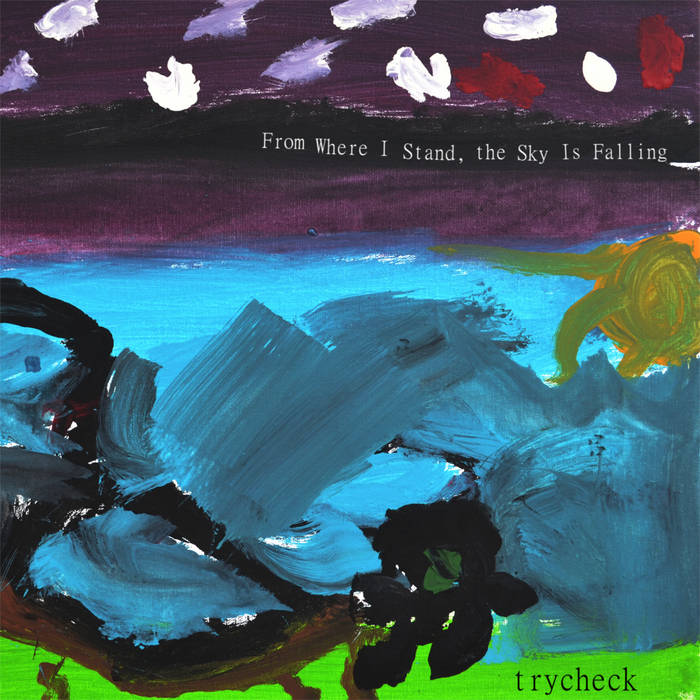
He looked at the concern on his friends’ faces, nevertheless, and shrugged his wonders away.
Henny-Penny, Rooster-Booster, and Ducky-Chucky waddled and waddled and waddled until they met up with the brawny Goosie-Brucie floating with ease at the other end of the pond.
“Oh, Goosie-Brucie,” Henny-Penny began, “the sky is falling! The sky is falling! We must alert the king!”
“Oh, we must, we must!” Rooster-Booster chimed in.
Ducky-Chucky looked back up at the blazing sun and again wondered how the sky could fall on a warm summer’s day such as this one.
Goosie-Brucie wanted to protect his fowl friends, and he wanted to join them on their journey to the nearby palace, but he had a question about the sky above.
“Henny-Penny…” he started. “How do you know the sky is falling?”
“Well, it fell right on my head!” she answered.
Goosie-Brucie puffed his chest feathers instantly and moved right along, shrugging his question away.
Henny-Penny, Rooster-Booster, Ducky-Chucky, and Goosie-Brucie waddled and waddled and waddled until they came to the farm fence. They noticed the eccentric Turkey-Perky pecking on the other side.
“Oh, Turkey-Perky, the sky is falling! The sky is falling! We must alert the king!” Henny-Penny squealed.
“Oh, we must, we must!” Rooster-Booster chimed in.
Again, Ducky-Chucky, now hot as ever and missing his pond, wondered how the sky could fall on a warm summer’s day such as this one.
Goosie-Brucie again asked aloud, “How do we know the sky is falling?”
“It fell right on my head, I say, I say!” Henny-Penny shouted in desperation.
Now, Turkey-Perky stopped pecking and turned to the group:
“Rooster-Booster, did you see the sky fall?”
“No, I did not,” the rooster replied quietly.
“And, Ducky-Chucky, you look strained: how are you feeling?” Turkey-Perky asked.
“Well, I am concerned, I am hot, and I wonder how the sky could be falling on such a beautiful day,” he replied.
“And Goosie-Brucie,” Turkey-Perky turned to the burly bird, “You do not see any sky falling, do you?”
“No, I do not,” the goose responded.
“Ha-ha! Well, then, I will come with you on your merry way, but we’ve all got some doubts, Penny!” the turkey said with glee. He was interested to see where this adventure would go.
Henny-Penny, Rooster-Booster, Ducky-Chucky, Goosie-Brucie, and Turkey-Perky waddled and waddled and waddled until they could see the palace just beyond the farmer’s field.
As they waddled over the last hill of the vast field, they saw a flash of reddish-brown before them. It was Mr. Fox!
None of the fowl friends had met this sly creature before, but they had heard rumors of his trickery and appetite. Henny-Penny and Rooster-Booster were oblivious, though, and desperate to keep moving. Ducky-Chucky suddenly shivered, forgetting the day’s heat, while Goosie-Brucie’s chest became even puffier; Turkey-Perky just stopped and smiled.
Ducky-Chucky suddenly shivered, forgetting the day’s heat, while Goosie-Brucie’s chest became even puffier; Turkey-Perky just stopped and smiled.
“Hello, hello, hello,” cooed the fox.
“Oh, Mr. Fox, the sky is falling! The sky is falling! We must alert the king!” Henny-Penny shouted.
“Oh, we must, we must!” Rooster-Booster chimed in. But the other birds stayed silent.
“Ah, yes, the sky is falling! And I know where the king is!” replied a delighted Mr. Fox. He licked his lips and gestured the birds to follow him past a large tree and back over the hill.
Henny-Penny and Rooster-Booster began to waddle and waddle and waddle in the direction of Mr. Fox. Turkey-Perky whispered something to Ducky-Chucky and Goosie-Brucie, and then the three waddled closely behind the rest.
As Mr. Fox led Henny-Penny and Rooster-Booster into a hole in the hill just under the tree, Ducky-Chucky bounded into action. There was a small patch of water beside the opening, and the duck giggled with delight as he splashed his feet loudly.
Rooster-Booster and Mr. Fox re-emerged from the hole, suddenly distracted by all the quacking and splashing. Goosie-Brucie looked at Turkey-Perky, who gave him the signal, and stood right under the tree over the hole. The goose puffed his chest out as hard as he could muster and bumped the trunk, causing the tree to shake. Several acorns fell, covering the hole and hitting Mr. Fox, knocking him out cold. Turkey-Perky pecked and pecked and pecked up the acorns until there was just enough room for the tiny hen to escape out of the hole. “Chicken Little” indeed! By now, she had seen the acorns collapse and knew what had fallen on her head earlier.
Henny-Penny, Rooster-Booster, Ducky-Chucky, Goosie-Brucie, and Turkey-Perky waddled and waddled and waddled back home to safety. Henny-Penny hugged her fowl friends and kissed Turkey-Perky on the cheek, grateful that the fox had not eaten them—and that the world was not ending! Instead, they all lived happily ever after.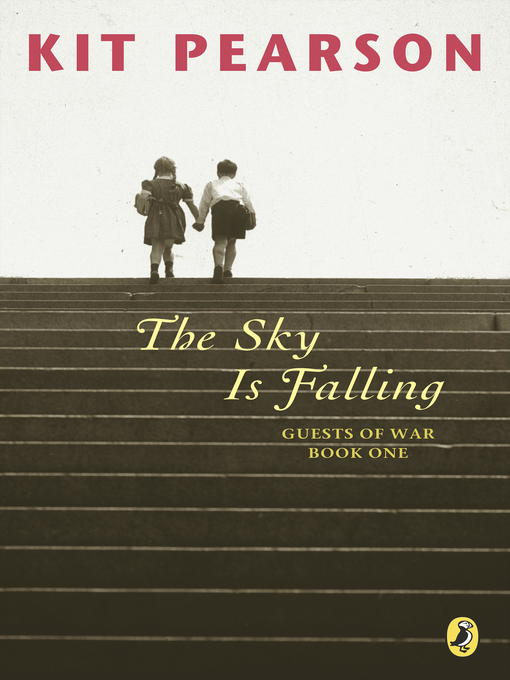
Printable version of this story
My name is Tasha Guenther. I currently live in Hamilton, Ontario, Canada, while I finish my Ph.D. in Cultural Studies with a concentration in digital cultures at McMaster University. I am an avid academic essay/book chapter writer, but I also enjoy writing short stories and non-fiction pieces. You can read more of my DLTKsCrafts work here!
Alongside my learning, studying, and thinking about digital platforms and critical theory, I appreciate long conversations with close friends, reading poetry, and taking photos of my cat. Learn more about me here or connect with me on my Instagram, Twitter, VSCO, and Facebook accounts.
When it Feels Like the Sky is Falling | The Story Tree
by storytree | Jan 27, 2020 | environmental storytelling, Fairy Tales, Folk Tales, Green Storytelling, Storytelling, The value of oral storytelling
How can a simple old folktale be useful for activists and changemakers in complex modern crises? In tabloid papers, Chicken Little has at times been used by cartoonists in extremely dismissive and sometimes savage ways to imply that environmentalists warning of ecological collapse and climate change are as foolish as Chicken Little. I can understand how that could put some people off the tale! I still find the story endearing and for me, the fable is a valuable reminder of what not to do when I come across challenging environmental news and helps me think about how to communicate such a story.
I can understand how that could put some people off the tale! I still find the story endearing and for me, the fable is a valuable reminder of what not to do when I come across challenging environmental news and helps me think about how to communicate such a story.
Folktales can certainly be enjoyed just as entertainment. We all need to decompress and relax, and in times of crisis, we need this all the more. But good stories can be more than entertainment. They can be road maps for life if we learn how to make sense of their wisdom, though interpreting a story is far more subjective than reading a map. Even many simple stories have multiple layers and can be applied in a myriad of ways. Different people will understand the story differently. That is the beauty of metaphor. To prescribe a single definitive meaning for a story is to clip its wondrous wings. If allowed to, a story may fly within each of us uniquely. I will share the three ways I draw on this story in times of crisis.
The Fable
The phrase ‘the sky is falling’ comes from the English folktale ‘Chicken Licken’. The main character gets hit on the head by an acorn but assumes the knock was caused by the sky falling. She runs about in panic and dread, declaring, ‘The sky is falling! The sky is falling!’ Her farmyard friends decide to accompany her to inform the King of this terrible news, though no-one thinks to question Chicken Licken’s original assumption. As night begins to fall, Foxy Loxy charmingly invites the travelers to sleep in his den overnight. They accept, but at dawn to her horror, Chicken Licken discovers that several of her companions have become dinner for Foxy Loxy and his family. (1) The story originated from an ancient Buddhist Jakarta tale. More on that later. When the story traveled to the US it became Chicken Little. Disney made a cartoon film by the same name.
Nostradamus and My Teenage Fears
Nostradamus and his Prophecies
When I was 15, it was the late eighties and we were constantly hearing about the massive global stockpile of nuclear weapons and ‘mutually assured destruction’. One night my Mum and I watched a TV show about the Nostradamus Prophecies. His medieval poetic verses were interpreted to fit current events. By the end of the program, I was convinced his predictions were accurate and within five years the Eagle (the US) was going to engage in nuclear warfare with the Bear (USSR). When after five years, nuclear winter had been averted and I was very much alive, I realised not all prophecies are accurate, even the plausible ones! If as a student, I had been trained in critical thinking skills, as happens in Finland, I may have discerned the faulty logic in that TV show and thereby avoided several years of low-level despair. (2)
One night my Mum and I watched a TV show about the Nostradamus Prophecies. His medieval poetic verses were interpreted to fit current events. By the end of the program, I was convinced his predictions were accurate and within five years the Eagle (the US) was going to engage in nuclear warfare with the Bear (USSR). When after five years, nuclear winter had been averted and I was very much alive, I realised not all prophecies are accurate, even the plausible ones! If as a student, I had been trained in critical thinking skills, as happens in Finland, I may have discerned the faulty logic in that TV show and thereby avoided several years of low-level despair. (2)
Catching that Acorn
In the Information Age, we have access to far more news than we can possibly cope with emotionally, let alone actively respond to. And the news seems to be getting bleaker with each passing year. If you are following any amount of news at all, you’ll be aware that modern humans have no shortage of big things to worry about: from environmental disasters, to talk of war, the development of AI, to the rise of populist far-right politics. To add to the stress, unless you’re a specialist in the field you are reading about, it can be challenging to discriminate between what is fact – ie an acorn falling on our head, from what is a distortion – ie a falling sky. Furthermore, with seismic, environmental and social changes unfolding around the globe, it can feel a bit like the sky is falling. That is, things you took for granted can’t be taken for granted anymore. We can wind up feeling overwhelmed, which can lead to despair and the desire to withdraw or numb out.
To add to the stress, unless you’re a specialist in the field you are reading about, it can be challenging to discriminate between what is fact – ie an acorn falling on our head, from what is a distortion – ie a falling sky. Furthermore, with seismic, environmental and social changes unfolding around the globe, it can feel a bit like the sky is falling. That is, things you took for granted can’t be taken for granted anymore. We can wind up feeling overwhelmed, which can lead to despair and the desire to withdraw or numb out.
However, if the ‘acorn’ has been objectively studied and the sky is falling, doing something constructive in response, preferably in collaboration with others, is far more likely to make me feel better than worrying at home alone in front of my computer screen. At the same time, I need to participate in activism in a sustainable way, so I don’t burn out. I can’t do it all, so I need to focus on what I can do, so I can not only keep taking action, but enjoy my life and be an asset to my family and community.
Since the seventies, various practices have been developed to respond to activist burnout and rising ‘eco-anxiety’. Buddhist meditator and activist Joanna Macy developed ‘The Work that Reconnects’, ‘a form of group work designed to foster the desire and ability to take part in the healing of our world’. In Australia, ecopsychologist Dr. Eshana Bragg co-created Joyality Resilience Training with former student, Rachel MacKenzie-Taylor. It is a program that draws on ecopsychology as well as The Work that Reconnects brings activists together in circles.
Dealing with the Foxy Loxy, Misinformation and other Predators
One way of thinking of Foxy Loxy is, as a symbol of those who appear to be friendly but are actually pedaling misinformation which could lead us to our doom. If as activists and changemakers, we want to help people see the real as opposed to imagined dangers, recent research can help us (3). If we try to change people’s opinions too forcefully about acorns and falling skies, we can create a rebound effect. That is they may become even more attached to the ‘truth’ of misinformation. Some would say that environmental scientists chronically underreported the dangers they foresaw decades ago because they were afraid of being called Chicken Little. So we need to tread a middle path. A key element of helping people see through fake news is to educate them ahead of time regarding what disinformation they are likely to encounter and why it is wrong. Then they are less likely to accept it as true.
That is they may become even more attached to the ‘truth’ of misinformation. Some would say that environmental scientists chronically underreported the dangers they foresaw decades ago because they were afraid of being called Chicken Little. So we need to tread a middle path. A key element of helping people see through fake news is to educate them ahead of time regarding what disinformation they are likely to encounter and why it is wrong. Then they are less likely to accept it as true.
Older Wisdom: Lion, Hare, and Deductive Reasoning
Whenever one reweaves a folktale, it is good practice to explore several versions. My understanding of Chicken Licken was expanded when I discovered it evolved from an ancient Jakarta tale called ‘The Sound that Hare Heard’. In it, the Buddha is asked if some highly ascetic religious practices had any value. He indicated that they didn’t by comparing them to ‘the noise hare heard’. He then relates the story, in which hare hears a fruit thud onto the ground, decides the world is ending and starts a stampede among the animals: herds of deer, boars, elk, buffaloes, wild oxen, and rhinoceroses, a family of tigers and some elephants.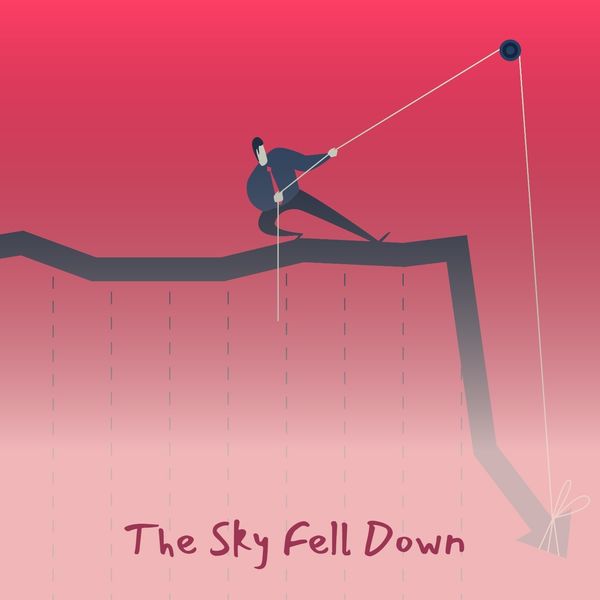 Lion perceives what is happening and acts quickly. He roars three times to stop them just as they were about to plunge off a cliff. He investigates what caused their panic, explains their wrong assumptions, then kindly reassures them all. At the end of the story, the Buddha reveals that he was Lion in a previous life. The fable has a similar lesson to Chicken Licken, but the wise Lion character spells out more clearly the need for deductive reasoning and fact-checking.
Lion perceives what is happening and acts quickly. He roars three times to stop them just as they were about to plunge off a cliff. He investigates what caused their panic, explains their wrong assumptions, then kindly reassures them all. At the end of the story, the Buddha reveals that he was Lion in a previous life. The fable has a similar lesson to Chicken Licken, but the wise Lion character spells out more clearly the need for deductive reasoning and fact-checking.
These are the ways I draw on Chicken Licken in times of crisis and why I believe that old fables can be highly relevant for change-makers even in a complex, modern crisis, delivering far more than mere amusement. ‘Chicken Little’, ‘The Sound that Hare Heard’ and related tales can become a conceptual framework for our communication.
- When I come across facts I find disturbing, flying into a panic is counterproductive and exhausting, both for me and those around me. I need to use critical thinking like Lion to differentiate between harmless nuts or fruits dropping, a sky falling or the world ending.

- When I encounter scary news that is credible and sound, taking strategic action will feel better than worrying. Connecting to community can help me stay grounded.
- In response to dangerous misinformation akin to the seductive hospitality offered by Foxy Loxy, I can be like Lion and educate myself and others to avoid being misled.
So when it seems the sky is falling, I give myself space to express my feelings, then I remember Lion so I can stay calm, grounded and keep taking strategic action. Perhaps one story at a time, one action at a time, we can transform fears into positive action, heal that which is falling apart and nurture vast healthy forests of acorns, fruit, and nuts.
Stories for a More Beautiful World
I lead online storytelling workshops for changemakers, educators, activists and healers called ‘Stories for a More Beautiful World’. Details at my Workshops page.
Notes(1) Chicken Licken as collected by English folklorist Joseph Jacobs. Listen to a version of Chicken Little recorded by Story Nory. There is also a Brer Rabbit version.
Listen to a version of Chicken Little recorded by Story Nory. There is also a Brer Rabbit version.
(2) Article: ‘How Finland starts its fight against fake news in primary schools’, The Guardian
(3) ‘We have the vaccine for climate disinformation let’s use it’, The Conversation.
‘Humans are hardwired to dismiss facts that don’t fit their worldview’, The Conversation
0031Walked far in the light of her star;
His fingers turned snow into steel.
And he stood by the river to drink silence;
Wash away everything and stay alive again.
To find her voice, enter her into the dusk,
Become a wanderer on her long journey;
In his fingers, water turned into smoke.
And when his day ended silently and strangely,
And his horses were light for the first time,
That flame of her candles, the rings of her keys,
Delicate as night, the marble of her shoulders,
Silently lay his hands in the stone.
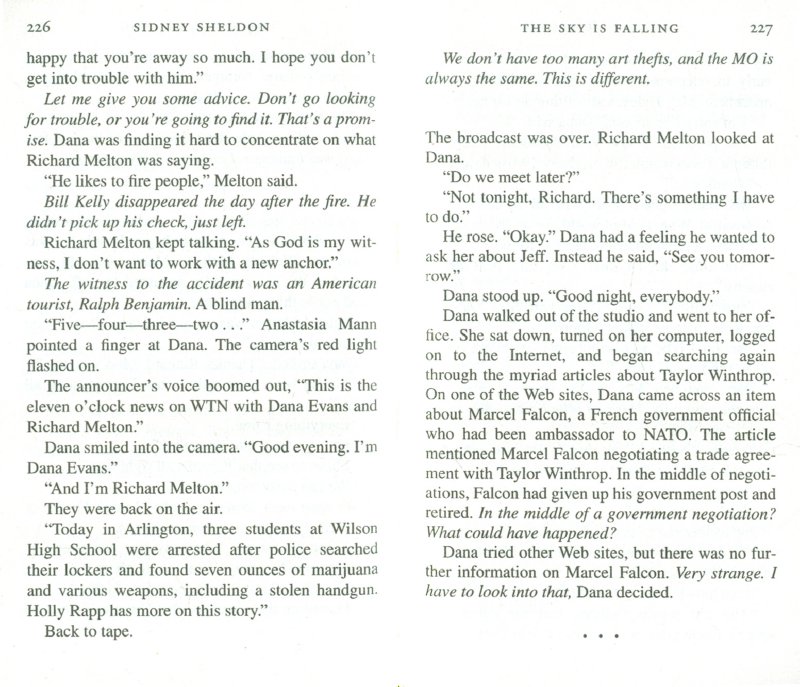 "
"
I don't really like lofty epithets, but isn't this poetry of genius?
Poetry is metaphorical and multidimensional, in which each reader will find their own content and come to the same conclusion as I do - that is why the sky does not fall . For me, the poem has a very precise title, full of deep meaning.
"Water turned into smoke in his fingers" - one would like to take it lightly. As Andrei Tarkovsky said at one meeting with him, when some smart guy asked him to explain the meaning of the episode with the cup in "The Mirror" - "Do not look for meaning where there is none. For me, this is as natural as breathing. I feel that there couldn't be anything else instead of this episode... That's it."
So Grebenshchikov, perhaps, simply played with words to achieve some spirit of the composition, its emotional and philosophical mood. Finding a natural and the only possible continuation for it. And he did it great. If there is a desire to "creak with one's brains", every thinking person will be able to build wonderful plots-riddles on the basis of this verse, and all of them will be different. Because, as one of my acquaintances said, Grebenshchikov operates with "transpersonal metaphors."
If there is a desire to "creak with one's brains", every thinking person will be able to build wonderful plots-riddles on the basis of this verse, and all of them will be different. Because, as one of my acquaintances said, Grebenshchikov operates with "transpersonal metaphors."
Personally, I imagine the story of HIM's self-improvement and self-sacrifice on the way to achieving the goal that cost him his life. And only after this sacrifice did the MEETING take place.
Surprisingly for me, this narrative intersects with the words of Alexander Scriabin about one of his late preludes:
eerie and magically bewitching. He had been playing it continuously for several times already, as if he were immersed in these sounds in the silence of the deep evening. We were alone in the study ... Tags: moscow, russia, BG, Grebenshchikov, Moscow, Russia, literature, sky 1969. I am five years old. Garrison "Ozernoye" in Ukraine. Hot short summer nights. I fall asleep and wake up to the roar of aircraft engines. Father leaves for flights before dark, and returns late at night. I hardly see him, like most of the boys and girls in our air town. Therefore, for me, my father is a tunic with gold captain's stars on blue epaulettes, which I secretly take out of the closet from my mother when she is in the store and try it on in front of a mirror, like a coat. Heavy golden mugs of medals chime melodiously at every step. I stand in front of the mirror and pull with all the force of boyish lungs: At that time there was no boy in the country who did not know the words to the songs of Oscar Feltsman and Robert Rozhdestvensky. The whole country sang it. And the whole country bowed its heads before the feat of the crew of the newest fighter-interceptor Yak-28. Kapustin Boris Vladislavovich - captain, was born in 1931 in the village of Urupsky, Otradnensky district, Krasnodar Territory, in the family of a researcher. In 1947 he graduated from a seven-year school in Rostov-on-Don, in 1951 - from the Rostov Industrial College. In 1951, he was drafted into the ranks of the Armed Forces, at the suggestion of the draft board, he entered the Kirovobad Military Aviation School for Pilots. Kholzunov. After graduating from college, assigned to the North. Then he was sent to the Group of Soviet Forces in Germany (GSVG). Yanov Yuri Nikolaevich - senior lieutenant, was born in 1931 in Vyazma, Smolensk region, in the family of a railway worker. After graduating from college, he was sent to the Group of Soviet Forces in Germany. Both in 1964 retrained in Novosibirsk for the new Yak-28 fighter, a silvery handsome man, whose impetuous, almost "Gothic" forms became the personification of a gambling era - the assault on space, supersonic, and the stratosphere. The already prepared crew as part of a group of aircraft flew from Novosibirsk to the GSVG to the Finov airfield. There, 40 kilometers from Berlin, the 668th bomber aviation regiment of the legendary 132nd bomber Sevastopol Red Banner Aviation Division was based. Kapustin - pilot, Yanov - navigator-operator. Both are top notch fighters. Others were not taken here: in the midst of the Cold War, the world has not yet recovered from the Caribbean crisis, in Germany, a dozen and a half armies of the former allies in the anti-Hitler coalition are head-on. On the morning of April 6, 1966, Captain Boris Kapustin's squadron received an order to fly the new Yak-28Ps to Zerbst, to the base of the 35th Fighter Aviation Regiment. It was a fabulous car! The first Soviet fighter-interceptor capable of destroying the enemy at low altitudes, not only on overtaking, but also on a collision course. A link of interceptors "along the chain" was distilled to Germany from the Union, where they were assembled at the Novosibirsk Aviation Plant. - On April 3, they unexpectedly landed in Finov, although only 15 minutes of flight remained before Zerbst, - recalls Galina Andreevna Kapustina, the widow of the flight commander. - When Boris came home, he admitted: he barely made it, the engine was junk. Aircraft were not released from the airfield for three days, technicians were busy with them. And only on April 6 was they allowed to fly to Zerbst. For everything about everything - from taxiing out on the runway to landing - forty minutes. The laces on high-altitude suits are tightened, all zippers are fastened, helmets are put on, aircraft technicians, like caring nannies, habitually help the pilots take their seats in the cockpits, check all connections and connectors, remove covers and plugs. At 15.24, a pair of brand new interceptors, still smelling of varnishes and nitro paints, flooding the airfield field with the roar of engines, quickly ran up the runway and soared into the sky. Flight commander captain Boris Kapustin - leader, captain Vladimir Podberyozkin - follower. Navigators on board: Kapustin - Senior Lieutenant Yuri Yanov, Podberyozkin - Captain Nikolai Lobarev. While the link is breaking through low clouds, here is the certification that the commander of the regiment Hero of the Soviet Union Lieutenant Colonel Koshelev gave Kapustin in November 1965, when he was nominated for the position of deputy squadron commander: "Kapustin flies on Yak-18, UTB-2, Il-28 aircraft , Yak-12 and Yak-28L with the R11AF2-300 engine Total flying time - 1285 hours In 1964 he successfully retrained on the Yak-28, quickly mastered the retraining program Flying time on the Yak-28 - 247 hours Prepared for combat operations during the day and at night with the minimum weather from low, high altitudes and from the stratosphere at supersonic speed. The navigator Yuri Yanov was also brilliantly certified: "He flies on Li-2, Il-28, Yak-28 aircraft. As a navigator he is prepared for combat operations with the Lotos system, at low altitudes - with the OPB-16 sight. Total flying time - 1030 hours, on the Yak-28 - 185 hours. In 1965 he flew 125 hours, performed 30 bombings with an average score of 4.07. He loves to fly. In the air he is calm and initiative. Very serious and businesslike..." in the heavenly distance, they could reach the stars with their hands. The trouble came up like tears to the eyes: once in flight, once in flight, once in flight the engine failed ... Altitude 4000. A pair of Yak-28s, having broken through dense clouds after takeoff, glided in an icy void pierced by the dazzling sun above snow-white clouds. Direction to Zerbst! Ten minutes of flight had already passed, when the Yak of the leader suddenly veered sharply to the right. He began to lose speed and fall. A short entry remained on the tape recording of the radio exchange preserved in the materials of the investigation: Kapustin - to the follower: - 383rd, move to the right! On command, the wingman performed a maneuver, bypassing the leader's aircraft that was losing speed and control, and came forward. Yak-28 Kapustin immediately fell behind. After a couple of seconds, Podberyozkin asked: - 367th, I don't see where you are? - Three hundred and eighty third, route on assignment! I'm coming back! Kapustin replied. Podberyozkin continued flying, but a few seconds later, worrying about the commander, again asked for the leader: - ...sixty-seventh, how are you? Silence. - 367th, why don't you answer? This simply could not be! The Yak-28 engines are two units independent of each other, each located on its own plane. As the commission establishes, the reason was a "design and manufacturing defect. Alas, this was not surprising. The Yak-28, which began to enter the army in 1960, turned out to be a very capricious machine and often refused. The fuselage of the aircraft was not strong enough and deformed when fully loaded, while it was impossible to close the cockpit canopy. Therefore, it was necessary to first land the crew, close the cockpit, and only then refuel the aircraft and hang up ammunition. Takeoff was allowed only in the non-afterburner mode of operation of the engines - when the afterburner was turned on on takeoff, a "raznotyag" arose, which inevitably led to disaster. For a long time, the flap extension system, which developed insufficient force, caused criticism ... The haste with which the Yak-28 was created is the root cause of its accident rate. The root cause of the haste is the political situation in Europe, where there was a smell of a big war. Vicious circle. The end justifies the means... The 8th State Red Banner Research and Testing Institute of the Air Force opposed the adoption of the Yak-28P into service. Nevertheless, the aircraft enjoyed respect among aviators. The pilots were especially impressed by its thrust-to-weight ratio - when flying without weapons in afterburner, the fighter could gain altitude almost vertically. The danger of flying on it was considered something natural. So to speak, the costs of the profession. Such was the time, such were the people... "Jump!" The silence was deafening. The plane began to lose altitude rapidly. Don't panic! Psychology of a pilot - to the last fight for the life of a winged machine, save, land! And thus preserve priceless evidence of what happened. A malfunction will be detected on the ground, telegrams will fly to all corners of the country - check the problem node. Therefore, there is no time to think about your own. Kapustin tried to start the engines with the help of an autonomous start system and oxygen make-up - it did not work! Another attempt failed! A deceptively soft snow-white blanket of clouds was inexorably creeping towards the "Yak". Beneath it is still invisible ground. Altitude 3000. "Yak" fell into the clouds, the cockpit instantly became dark, as in twilight. Decision time. You need to jump. According to SPU (aircraft intercom. - Auth.) Kapustin gives a command to the navigator: - Yura, jump! But to leave the plane at that moment would complicate the pilot's position even more. The difference between an interceptor and a bomber is that in the Yak-28 two people sit in the same cockpit one after the other; during ejection, a common cockpit glazing lamp flies off. A hurricane of air will fall on Kapustin, the explosion of the ejection seat squib will disturb the alignment of the aircraft, push it down. Yanov instantly makes a decision: - Commander, I'm with you! Let's jump at the same time! The Yak emerged from the clouds. There is a momentary shock in the cockpit. Under them, in full breadth, from horizon to horizon, Berlin opened up... Half a century ago, there were no modern navigation systems that could determine the position of an aircraft with an accuracy of up to a meter. The flight above the clouds on the course in the absence of landmarks and a strong side wind "demolished" the interceptor several kilometers to the side, to the city. Height 2000. And a 16-ton, full tank of fuel car falls into busy streets. The mirror of Lake Stössensee flashed far ahead. In front of him is a green wasteland covered with bushes. This is the last chance - to reach him and try to sit down. Both pilots, with the last of their strength, pull the control sticks towards themselves, bringing the plane out of a dive. And it would be necessary to jump - the flight did not come out. But an empty plane will crash on the city. It will pass without leaving a living trace, and thousands of lives, and thousands of lives, and thousands of lives will be interrupted then smoke, in complete silence, suddenly makes a slide, gaining maximum speed. And from the top of the hill, in a gentle turn, it goes towards the Berlin outskirts. From the story of West Berlin worker W. Schrader: "I was working on a 25-storey building. At 3:45 pm, an airplane took off from a gloomy sky. I saw it at an altitude of about 1,500 meters. The car began to fall, then rose , fell again and rose again. And so three times. Obviously, the pilot tried to level the plane..." Roofs of houses flashed under the very wing. Kapustin ordered again: - Yura, jump! Aircraft of the 1960s were fitted with second-generation ejection seats that had limited ejection heights. On the Yak-28, this limit was 150 meters. Yanov answered again: - Commander, I'm staying! Blocks flash by and you can't jump. Let's reach the forest, friends decided. Away from the city we will carry death. Let us perish, let us perish, let us perish, but we will save the city The earth is moving, filling the horizon. The last houses disappear under the fuselage - here it is, a saving wasteland. And suddenly among the greenery - a forest of crosses and roofs of crypts. Cemetery! You can't sit down! Now - only on the surface of the lake that opens up ahead. But in front of him is a high dam... Kapustin's last words remained on the tape: - Quietly, Yura, let's sit down... In some incredible way, they also jumped over the dam, almost hitting a truck driving along it. But to level the plane, raise the nose for landing - there was no speed, no time. Having raised a fountain of water, "Yak" dug into the muddy depths with a huge spear. Less than 20 minutes have passed since departure. Since the beginning of the accident - about 30 seconds. Galina Andreevna Kapustina remembers: "Boris didn't want to leave the house that day! - he said. I already had lunch on the stove for my son, whom I was waiting for from school. "Well, go ahead," I said to Boris. He nodded and left. And my throat caught from a bad feeling. I rushed to the window. All five crews had already left for the airfield, but Boris was still standing near the house, shifting from foot to foot, as if he felt that he was going towards death.0027 I learned about Boris' death only on the second day. I was afraid to talk about it, I was the last to know. But I already felt that something bad had happened. The first-grader son, returning from school, lay down on the sofa, turned to the wall. I saw how the wives of officers were crying, gathered together. And when the political officer, party organizer and regiment commander entered the apartment, I understood everything. And then it was time for the vultures. The disaster area was the English sector of West Berlin. Within 15 minutes, Brigadier General David Wilson, head of the British military mission, arrived here. The British military police cordoned off the lake. All appeals of the Soviet command to gain access to the crash site were rejected under the pretext of settling bureaucratic procedures. And at night, a team of military divers began to dismantle the equipment of the fighter. Western experts knew that it had a unique Oryol-D radar... The British got the bodies of the pilots quickly, but continued to assure the Soviet representative, General Bulanov, that they were still trying to do it. Despising the unwritten code of officer honor, to which Soviet pilots were faithful until the last seconds of their lives. Only at dawn of the next day were the bodies of Kapustin and Yanov defiantly laid on the raft. But there were also touching human manifestations of grief. Thousands of citizens came to say goodbye to the pilots in the eastern sector of Berlin. The British command sent a unit of Scottish riflemen for the guard of honor. And they stood next to Soviet soldiers, soldiers of the National People's Army of the GDR, activists of the Union of Free German Youth. This was, perhaps, the only case that united communities that were incompatible in those cold times. Later, a memorial plaque was erected at the crash site. Commemorative signs appeared in Eberswalde and seven other cities in Germany... On April 16, 1966, the Military Council of the 24th Air Army presented Captain B.V. Kapustin for awarding the Order of the Red Banner. (posthumously) and Senior Lieutenant Yanov Yu. The arrow of the plane rushed from the sky. And the birch forest shuddered from the explosion ... It will not be long before the glades will be overgrown with grass. And the city thought, and the city thought, and the city thought: the exercises are going on Yuri Yanov is buried in his homeland, in Vyazma, not far from the places where the first cosmonaut Yuri Alekseevich Gagarin was born. Boris Kapustin was given his last honors in Rostov-on-Don, where his parents lived at that time. The widow also had to bury her father-in-law that day. Vladislav Aleksandrovich Kapustin could not bear the grief, he loved his son very much... - Then he suffered two strokes, lay at home, not getting up, - recalls Galina Andreevna Kapustina. He was afraid to talk about what happened. Fifty years later, I am standing at the Vyazma cemetery in front of a modest red granite obelisk. A mean inscription under the photo: "Senior Lieutenant Pilot Yanov Yuri Nikolayevich, heroically died in the line of duty." Quiet around. Smells like spring. And I suddenly find myself humming softly, as in childhood: In the grave, in the middle of silence, excellent guys from an excellent country lie. The huge sky looks at them lightly and solemnly, the huge sky, the huge sky one for two CALL EDITA PIEKHA - How did this song come to you, Edita Stanislavovna? - Oskar Feltsman wrote music to the verses of Robert Rozhdestvensky, who was in Berlin and learned about the heroism of the pilots there.
Alexander Nikolaevich did not expect an answer from me. He himself said mysteriously and quietly: "This is death."
- This is death, as that manifestation of the Feminine, which leads to reunification. Death and love... Death is what I call in Preliminary Action, Sister. There should no longer be an element of fear of her in her, this is the highest reconciliation, a white sound ... "
Death and love... Death is what I call in Preliminary Action, Sister. There should no longer be an element of fear of her in her, this is the highest reconciliation, a white sound ... "
( From the memoirs of L.L.0027 "And the city thought: the exercises are going on" - 55 years of the feat of the pilots Kapustin and Yanov
 ..
..
Crew
 In 1950 he graduated from secondary school N 1 in Vyazma, in 1953 - the Ryazan military automobile school, in 1954 - the Ryazan military school of navigators.
In 1950 he graduated from secondary school N 1 in Vyazma, in 1953 - the Ryazan military automobile school, in 1954 - the Ryazan military school of navigators. 
Takeoff
 For first-class pilots - an easy ride.
For first-class pilots - an easy ride.  As an instructor trained day and night under the minimum weather. He flies confidently, initiative in the air ... "
As an instructor trained day and night under the minimum weather. He flies confidently, initiative in the air ... "
Refusal

 "
"
Time
 But the command of the Air Defense Forces "pushed through" the decision to launch it into a series: 443 interceptors left the stocks of the Novosibirsk Aviation Plant. The Yak-28P was in service for almost thirty-five years, but was never officially adopted by our army.
But the command of the Air Defense Forces "pushed through" the decision to launch it into a series: 443 interceptors left the stocks of the Novosibirsk Aviation Plant. The Yak-28P was in service for almost thirty-five years, but was never officially adopted by our army.  And these are the saved lives of pilots.
And these are the saved lives of pilots.  ..
..
Feat
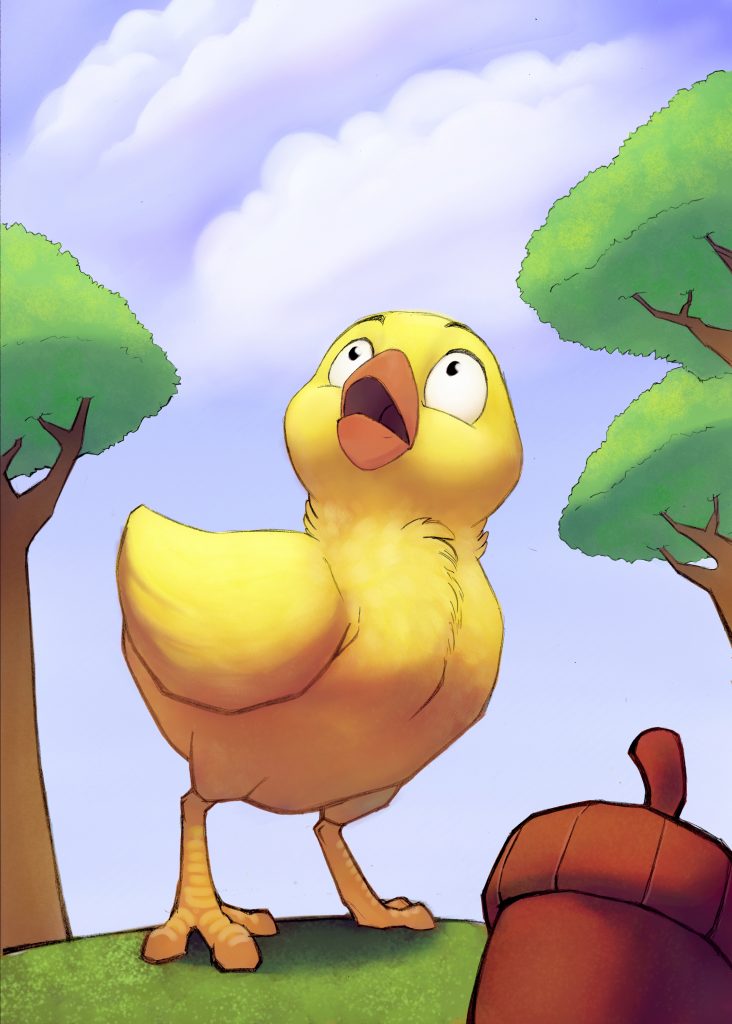
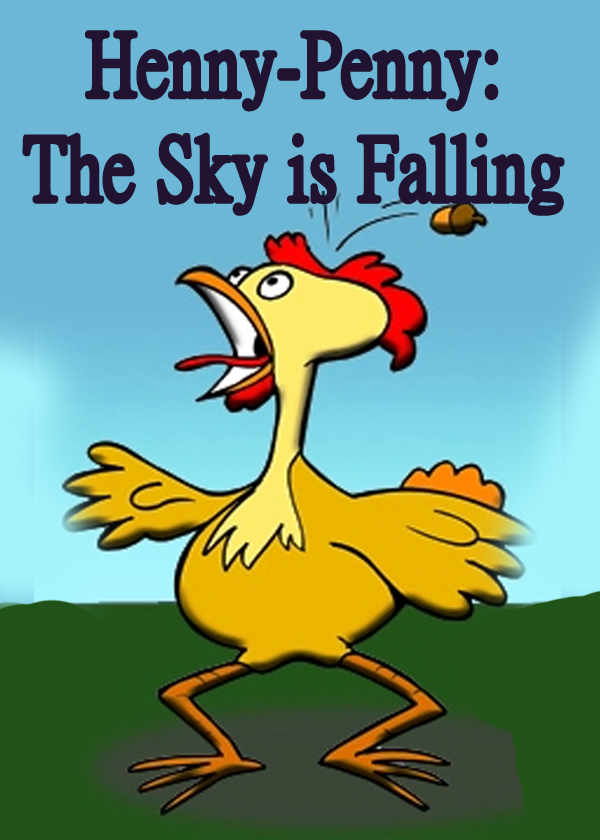 Yanov still had a chance to survive. But then Kapustin will definitely have no chance of escaping.
Yanov still had a chance to survive. But then Kapustin will definitely have no chance of escaping. 
Honor and dishonor
 She only asked: "Is he alive?" The commander shook his head. And I passed out."
She only asked: "Is he alive?" The commander shook his head. And I passed out."  But only closer to the night they were transferred to the Soviet command. The British were playing for time, because technicians from the Royal Aeronautical Institute at Farnborough were studying the dismantled equipment.
But only closer to the night they were transferred to the Soviet command. The British were playing for time, because technicians from the Royal Aeronautical Institute at Farnborough were studying the dismantled equipment.  N. (posthumously) for courage and self-sacrifice in the name of saving the lives of the inhabitants of West Berlin. Soon the Decree of the Supreme Soviet of the USSR was published.
N. (posthumously) for courage and self-sacrifice in the name of saving the lives of the inhabitants of West Berlin. Soon the Decree of the Supreme Soviet of the USSR was published.
A sky for two
 But he knew anyway. He only said: "Since Boris is gone, there is nothing for me to do here." And he died in less than a day. Father and son were buried side by side on the same day - April 12...
But he knew anyway. He only said: "Since Boris is gone, there is nothing for me to do here." And he died in less than a day. Father and son were buried side by side on the same day - April 12... "The navigator's wife got on stage in Voronezh..."

Learn more






